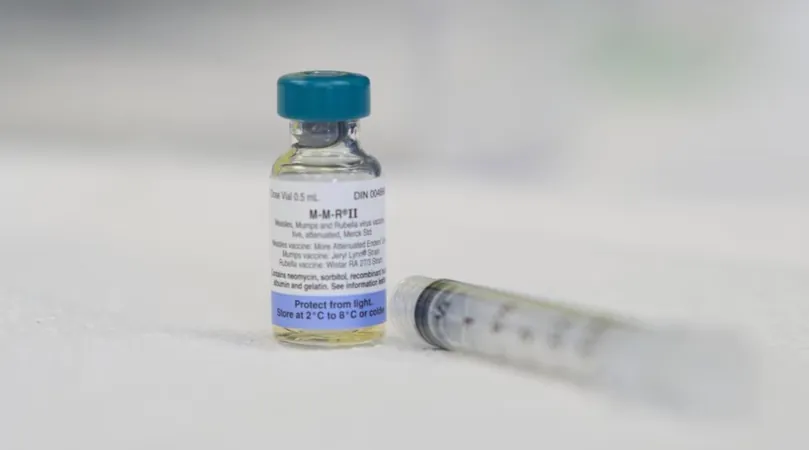
Groundbreaking Drug Shows Promise in Restoring Vision After Nerve Damage: A Game-Changer for Multiple Sclerosis?
2025-01-25
Author: Amelia
In a revolutionary study conducted at the University of Colorado Anschutz Medical Campus, scientists have uncovered a startling advancement that could transform vision restoration for individuals afflicted by multiple sclerosis (MS) and other neurodegenerative conditions. The drug, known as LL-341070, has shown remarkable potential in enhancing the brain's natural ability to mend myelin—the protective layer surrounding nerve fibers that, when compromised, can lead to significant visual impairment and cognitive decline.
Myelin damage is a well-documented characteristic of MS, with repercussions that extend far beyond vision, affecting motor skills and leading to cognitive disorders. Surprisingly, this deterioration is also a common aspect of the aging process itself. The research highlights a critical insight: while the brain possesses a limited capacity for self-repair following myelin damage, this regeneration is often sluggish and inefficient.
What sets LL-341070 apart is its ability to significantly speed up the repair mechanisms in the brain. In animal studies with mice, the drug not only enhanced the repair of myelin but also notably improved brain functions associated with vision, even after considerable damage had occurred. This key finding raises hope for individuals facing progressive loss of sight due to neurodegenerative diseases.
Ethan Hughes, PhD, who co-led the research, stated, "This research brings us closer to a world where the brain can heal itself. By harnessing this potential, we aim to assist individuals grappling with MS, providing them with the chance to reclaim their vision and cognitive abilities.”
The compelling nature of this study lies in its implications for treatment following severe injury. Researchers noted that even a partial restoration of myelin could lead to meaningful improvements in visual processing and related brain functions—offering a beacon of hope for the future.
Daniel Denman, PhD, another co-lead author of the study, emphasized the significance of cortical myelin in visual function and called LL-341070 a potential game-changer for recovery strategies in neurodegenerative diseases. "This study underscores the essential role of myelin in brain functionality,” he stated.
Looking ahead, the research team is set to explore the application of LL-341070 in other regions of the brain, working to refine and enhance the treatment's efficacy. Their ultimate goal is to expedite the path from laboratory bench to bedside, aiming for accessibility to patients in need.
"This discovery represents the beginning of a new frontier in neurological recovery," Hughes added optimistically. "We believe that LL-341070 and similar therapeutic strategies could one day deliver substantial benefits, enhancing the overall brain function and quality of life for countless patients."
As the scientific community anticipates further advancements, the potential for patients with vision loss to regain their sight and cognitive faculties may well be on the horizon—indeed, a promising step towards the future of neuroprotective therapies!









 Brasil (PT)
Brasil (PT)
 Canada (EN)
Canada (EN)
 Chile (ES)
Chile (ES)
 Česko (CS)
Česko (CS)
 대한민국 (KO)
대한민국 (KO)
 España (ES)
España (ES)
 France (FR)
France (FR)
 Hong Kong (EN)
Hong Kong (EN)
 Italia (IT)
Italia (IT)
 日本 (JA)
日本 (JA)
 Magyarország (HU)
Magyarország (HU)
 Norge (NO)
Norge (NO)
 Polska (PL)
Polska (PL)
 Schweiz (DE)
Schweiz (DE)
 Singapore (EN)
Singapore (EN)
 Sverige (SV)
Sverige (SV)
 Suomi (FI)
Suomi (FI)
 Türkiye (TR)
Türkiye (TR)
 الإمارات العربية المتحدة (AR)
الإمارات العربية المتحدة (AR)